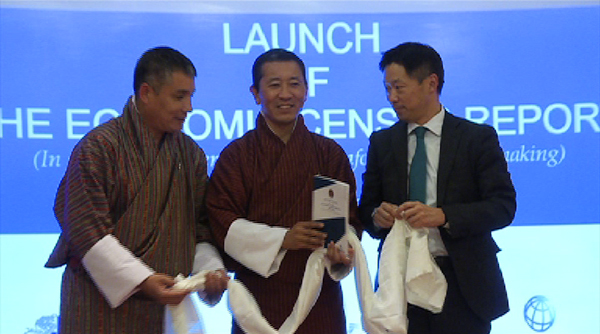 Difficulties with access to finance, rent payment and competition from the informal sector are the most frequently experienced obstacles faced by establishments engaged in different economic activities. This is as per the findings from the first-ever Economic Census report that was released yesterday.
Difficulties with access to finance, rent payment and competition from the informal sector are the most frequently experienced obstacles faced by establishments engaged in different economic activities. This is as per the findings from the first-ever Economic Census report that was released yesterday.
The census was conducted over a period of three months to understand the general profile of establishments, its employment and business obstacles faced by the business units. An economic census is a statistical survey conducted on economic units belonging to a given population.
Besides access to finance, transport and water supply are the most significant obstacles faced by primary sector establishments that are mostly in rural areas. For the secondary sector, access to raw materials, level of education and skills of employees and tax rates were prominent obstacles. And for the tertiary sector, electricity supply, competition from the informal sector and paying rent are the top most obstacles.
As Bhutan released its first economic census report, the Prime Minister Dr Lotay Tshering said the report should have been launched before finalising the 12th plan.
“12th plan is already in action. We did not have access to this document while framing the plan. A fortunate or unfortunate coincidence, just this morning the cabinet passed the reviewed CSI and FDI policy. We did not have access to this document while framing those two important policies. So this is how we have been governing, policies after policies getting passed from one side without hardcore evidence on this side. That worries me.”
As per the results of the report, there are about 14,000 establishments engaged in different economic activities in the country. Of this, 8,900 are located in urban areas. Thimphu, Chhukha, Sarpang and Paro together accounted for more than half of the total establishments in the country.
The census report also found that the establishments in Bhutan are strongly dominated by two economic sectors. Almost 63 per cent are operating in the trade sector, mostly as wholesale and retail, repair of motor vehicles and motorcycles followed by 21 per cent in the accommodation and food services sectors. And only five per cent represents the manufacturing section.
The key findings of the report will provide the government with opportunities for evidence-based policy formulation to support the private sector and creating an enabling business environment.









